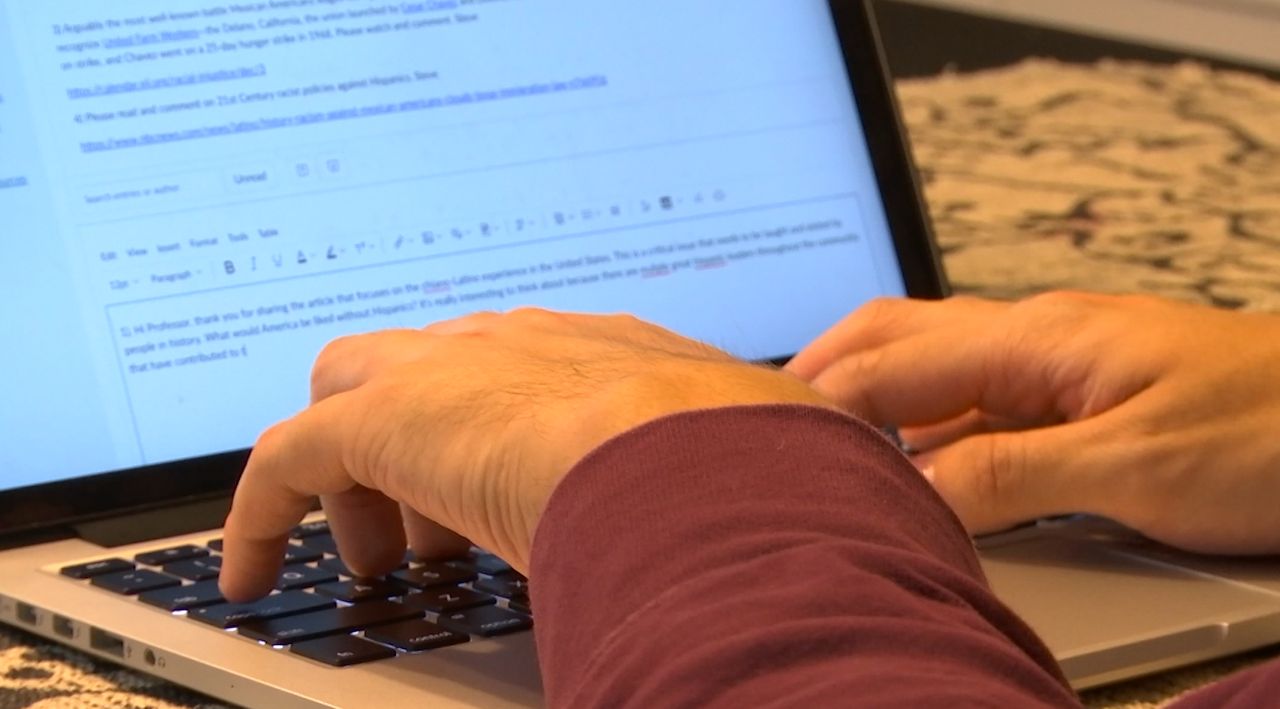
ORANGE COUNTY, Fla. — New daily cases of Monkeypox have slowed somewhat in Central Florida. But even as case numbers decline, public health experts say the virus remains a concern, including on college campuses.
What You Need To Know
- In September, Orange County reported 17 less Monkeypox cases than in August
- Central Florida colleges have not publicly reported any confirmed or suspected cases of Monkeypox
- Public health experts say schools should take precautions to avoid an outbreak
Andy Diaz, a student at University of Central Florida, lives off-campus and studies remotely – a decision that he made after the school loosened COVID-19 social distancing and masking guidelines. Now, he’s worried about the possible spread of another virus: Monkeypox.
“When Monkeypox first came out, I was scared,” said Diaz. “I was like, ’I need to stay informed, I need to know what Monkeypox actually is and what are the symptoms, what I need to be on the lookout for and everything.’”
As the school year started, an outbreak of the virus was spreading in Central Florida. Now, it appears to be slowing. In September, Orange County reported 17 less cases than in August, down from 114 cases to 97.
Spectrum News reached out to colleges around Central Florida to better understand how they are preparing for the possibility of an outbreak. Bethune-Cookman University, Embry-Riddle Aeronautical University, Stetson University and Rollins College reported no infections and said they had taken steps to educate students about the virus and had plans in place to mitigate possible outbreaks, including preparing for contact tracing and quarantine.
Similarly, University of Central Florida reported working with Orange County and hosting educational materials about the virus online. UCF did not respond to inquiries about documented or suspected cases on campus and specific preparations the school was taking.
For Diaz, who says he got his vaccine as soon as he could secure one, most information on the virus came through LGBTQ+ networks.
“It was definitely person-to-person, like friends keeping up to date with each other,” he said.
In addition to informal networks sharing information, organizations like Impulse Orlando, The Center, and Bros in Convo spread the word about vaccine events.
“Working with gay and queer communities of color in Central Florida, we know that these communities have had limited access when it comes to equitable health services all around,” said Daniel Downer, executive director of the Bros in Convo initiative.
In addition to vaccine events coordinated with the Orange County Department of Health, Bros in Convo offers access to free WiFi for individuals who might not otherwise have a means of signing up for an appointment online.
Like Bros in Convo, Impulse Orlando – an organization promoting sexual health among young gay men – provided information online and coordinated Monkeypox vaccine events.
“They were the people I was looking to to get my information immediately,” said Diaz.
In Orange County so far, over 5,300 people have been fully vaccinated, and monthly case counts appear to be tapering. To keep the virus under control, advocates say it’s important to remember that while Monkeypox may be disproportionately affecting gay men, it does not discriminate.
“They don’t see color, they don’t see gender, they don’t see orientation. Diseases just see the human body and they’ll go for that human body if it’ll host it,” Diaz said.








